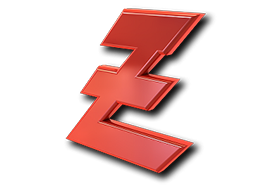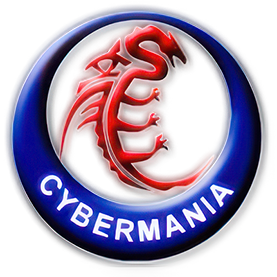
PureBasic is a native 32 bit and 64 bit programming language based on established BASIC rules. The key features of PureBasic are portability (Windows, Linux, MacOS X and AmigaOS are currently supported), the production of very fast and highly optimized executables and, of course, the very simple BASIC syntax.
PureBasic has been created for the beginner and expert alike. We have put a lot of effort into its realization to produce a fast, reliable and system friendly language. In spite of its beginner-friendly syntax, the possibilities are endless with PureBasic’s advanced features such as pointers, structures, procedures, dynamically linked lists and much more. Experienced coders will have no problem gaining access to any of the legal OS structures or API objects and PureBasic even allows inline ASM.
PureBasic is an “high level” programming language based on established BASIC rules. It is similar to any other BASIC compiler you may have used, whether for the Amiga, PC, MacOS X or Linux. Learning PureBasic is very easy! PureBasic has been created for the beginner and expert alike. Compilation time is really fast. This software has been developed for the Windows operating system. We have put a lot of effort into its realization to produce a fast, reliable and system friendly language.
The syntax is simple but the possibilities are endless with PureBasic’s advanced features, such as pointers, structures, procedures, dynamically linked lists and much more. The experienced coder will have no problem in gaining access to any of the legal OS structures or API objects.
PureBasic is a portable programming language which currently run on AmigaOS (680×0 and PowerPC) Windows (x86 and x64), Linux (x86 and x64) and MacOS X (x86 and PowerPC). This means that the same code can be compiled natively for all systems and still use the full power of each. There are no bottlenecks like a virtual machine or a code translator: the generated code produces highly optimized executables regardless of the OS on which it is compiled. The external libraries are very optimized, up to the assembler level when needed, which produces very fast and small commands.
Technical Features
– 486, Pentium, Core2, Core i7, Athlon, Phenom support
– Built-in arrays, linked lists, maps, complex structures, pointers and variable definitions
– Supported types: Byte (8 bit), Word (16 bit), Long (32 bit), Float (32 bit), Quad (64 bit), Double (64 bit) and also user defined types (structures)
– Built-in string types (characters) and transparent unicode support
– Constants, binary and hexadecimal numbers supported
– Expression reducer and optimizer (grouping constants and explicit numbers together)
– Standard arithmetic support in respect of sign priority and parenthesis: +, -, /, *, and, or, lsl, asl, lsr, asr
– Very fast compilation
– Procedure support for structured programming with local, global, protected variables
– Built-in thread programming facilities with threaded variables and threadsafe mode
– All Standard BASIC keywords: If-Else-EndIf, Repeat-Until, etc.
– External library support to manipulate objects like pictures, windows, controls, DirectX, etc.
– External libraries are very optimized up to the assembler level for maximum speed and compactness
– The Win32 API functions is supported as if they were BASIC keywords
– Inline assembler
– Precompiled structures with constants files for extra fast compilation
– Configurable CLI compiler
– System friendly, easy to install and use
Features
- Huge set of internal commands (1600+) to quickly and easily build applications or games
- Windows (x86 – x64), Linux (x86 – x64), OS X (x64, M1) and Raspberry (arm32, arm64) support
- BASIC programming language based keywords
- Very fast BASIC compiler which creates highly optimized executables
- No external DLLs, runtime interpreter or anything else required when creating executables
- Procedure and structure support for advanced programming
- Full unicode support
- Built-in containers like array, list and map
- Strong types, strong syntax to avoid programming mistakes
- Namespace support for easy code reuse
- Access to full OS API for advanced programmers
- Easy but very fast 2D game support through dedicated libraries (DirectX, OpenGL)
- Easy and high quality 3D support based on OGRE
- Optimal use of the available hardware by using highly optimized (assembly) commands
- Source code is portable between Windows, MacOS X, Linux and Raspberry
- Dedicated editor and development environment
- Powerful integrated debugger and profiler to easily trace and analyze code
(Retail) x86 x64
